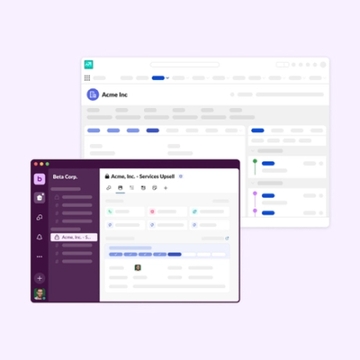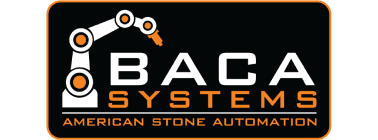Qonto is the leading European business finance solution with over 450,000 customers.
The company makes day-to-day banking easier for SMEs and freelancers by offering an online business account combined with finance tools, such as invoicing, bookkeeping, and spend management.
Founded in 2016 by Alexandre Prot and Steve Anavi, Qonto now operates in four European markets (France, Germany, Italy, and Spain), and employs more than 1,400 people. Since its creation, Qonto has raised €622 million from well-established investors. With its innovative product, highly reactive 24/7 customer support, and clear pricing, Qonto has become a European leader.
Qonto is fueled by wall-to-wall Slack—which it has used since its inception—allowing it to avoid the challenges of fragmented communication, silos, and broken remote project management that usually accompany explosive growth. It can, instead, put its efforts into other aspects of its performance, most notably employee training and support.
“In learning and development, it’s not only about upskilling but also about developing and empowering employees in their job,” says Céline de Miscault, Lead Learning and Development Manager at Qonto. “And my job is to be in the right place at the right time, with the right tools to support their growth.” Slack is one of those necessary tools for de Miscault and her team.

“Slack is helping me be efficient while going one step further in personalization, which I wouldn't be able to do otherwise.”
Deep integration of coaching
At Qonto, over 30 new hires are onboarded every month, and existing employees are continuously supported in their career growth. This dedication to talent development and ongoing training is particularly clear through the management training program that was made possible with Coachello, an online coaching integration on Slack.
The digital coaching market has grown exponentially, and it now offers various web or phone apps to potential customers. However, Qonto relies on simplicity and streamlining its operations, which is why Coachello—the only coaching platform that is fully integrated with Slack and offers high-quality coaching from experts around the world that seamlessly integrates into peoples’ day-to-day—was the right solution.
“We have so many different tools that I didn’t want to add another platform employees would have to learn to use and find each time; the integration with Slack was key,” says de Miscault. “Coachello adapted the solution and built a coaching program for managers, suited to our needs, from scratch.”
Coachello supports companies in their development strategies and can play a big role in transformation programs that include well-being as well as training. It offers custom programs and coaching through a network of 250 certified coaches in 50 countries around the world and supports clients with people development strategies. With a custom-made solution for Qonto, Coachello helped de Miscault and her team roll out the solution across the company.
What started as just a few one-to-one and group workshops, provided a proof of concept within a team that was struggling with communication. Since then, Qonto moved forward with a leadership program that helps people further their careers as well as providing coaching for existing leaders and executives.
The Coachello Slack integration allows for automatic notifications about the training program, updates, results, and progress tracking. Personalized support is also available right on the Slack dashboard. There is no need to speak to managers or HR and all the coaching is provided in a personal, safe space that ensures anonymity and tailored support. The program has a high rate of engagement, with 80% of people actively using it.
Staying connected through growth across borders
The impact on the Learning and Development department has been significant. “Thanks to Slack, in less than two years, I’ve been able to create learning and development that did not exist before,” says de Miscault. “It was part of a thought-out process and diligent preparation through which we’ve raised the bar on knowledge and learning and on how people can develop themselves at Qonto. Slack played a big role in this.”
However, Coachello is just one of the Slack integrations available at Qonto. The company implemented Slack as its tool of choice from the very beginning and expanded its use as it grew. During onboarding, the employees get a laptop with Slack already set up and are added to all the right channels. “Slack is the default,” says de Miscault. “In my previous job, I also used Slack; I would not know how to do it another way. I think Slack is one of the basics people expect today.”
There are three ways of communicating within the company: email, which is mostly used externally, Notion, and Slack. Slack’s scalability allowed the company to remain a well-connected unit despite now operating out of four countries and with half of its employees working remotely. The collaboration and sharing of information are enabled and strengthened through Slack channels. But interestingly, the company is also learning how to contain the amount of information available.
“Slack definitely helps us share information, and that is key,” comments de Miscault. “But how we used Slack a year ago is different to how we use it today with 1,400 people. Each phase of growth is a learning phase about the company’s needs and the ways to properly use Slack without additional noise.”
“I want the UX for our training participants to be as smooth as possible. Slack integrations allow me to personalize my use. With half the company working remotely, Slack is the one whole.”
Using integrations in a productive way
Qonto uses bots, apps, and workflows to help automate some of the employees’ work, improving productivity and effectiveness of tasks. For example, the company relies on the Lattice integration for performance reviews and on Lucca for HRIS. The L&D department is also building a lot with the Airtable integration.
“We don’t have an LMS (Learning Management System),” says de Miscault. “I’m building it from scratch from Airtable, creating integrations through Slack. These could be things such as reminders and the automatic creation of channels for training. I try to do most of my work through Slack because that’s where people are most active.”
For the learning and development team, the integrations are mainly achieved through workflows from the Airtable app, allowing for automation and bots, as well as through the use of the Make integration that can create visually automated workflows.
“For my projects, it’s not the integrations themselves helping me be productive, but how I use them,” adds De Miscault. “I want the UX for our training participants to be as smooth as possible. Slack integrations allow me to personalize my use. With half the company working remotely, Slack is the one whole.”
Increasing the toolset with native integrations
Slack has become a one-toolset platform, which is why Coachello and other solutions alike choose to be natively integrated into Slack. It is also why Qonto chose it as its main communication and automation platform. The company gets to keep using one tool and remain productive and efficient while, at the same time, maintaining the personal feel within the growing company.
“There are a lot of things I would normally do manually,” says de Miscault. “Even simple things, such as sending messages to remind managers that there is ongoing training for one of their team members. Slack is helping me be efficient while going one step further in our personalization efforts, which I wouldn’t be able to do otherwise.”
Any growing team needs to find scalable tools that fit into one toolbelt. Searching through various platforms to find the right solution for one job costs valuable time and employee effort. With Slack, Qonto and other companies like it, can find accessible productivity and solutions that get employees together.















